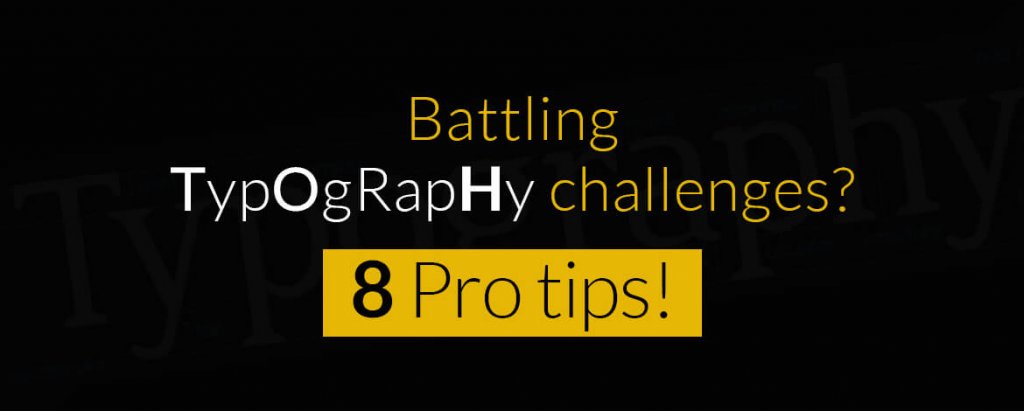After finishing a hectic day at work, you are returning back from your office. On your way, you are browsing through a lot of emails in your personal inbox. While doing so, you suddenly chance upon one email which is not so informative, but engages you with lovely typography. We are sure you must have hopped on to the brand till your last scroll.
Well, that’s the power of using good typography! It not only engages the recipient, but also covers up the overall email aesthetics.
Read it on to dive deep into the do’s and don’ts of using powerful typography in your emails.
1) Use Contrast
Color of your typography is crucial for arresting the eyeballs of your recipients. You can use the dark-light technique with some contrast to make your typos actually stand out (Argh! Not those typos that are errors, please note :P)
While using contrast, please ensure optimally utilizing the white-space around the typography so to ensure legibility isn’t compromised.
2) Provide strong fallback
Don’t fall flat while using typography. Fall-back instead. That’s crucial. With some designer or custom fonts having a limited email client support, you might end up battling poor click through if the typography doesn’t work well on a lot many email clients.
Use web safe fonts or provide a fallback that is similar to the designer font used by your designer. Choose the fallback font with a similar vertical height on a safer side. You can also pull fonts using external stylesheet and then later add the font family declaration in inline CSS.
3) Avoid the orphans
Typography will make utmost sense only when used in a right fashion. If your typography is breaking out leaving a lot of orphans at the end of sentences, it will be a frustrating UX for email readers.
4) Maintain the spacing
Everybody needs some space including text in your email. A striking typography doesn’t allow you to fumble with spacing in your text. Close-fitting texts effect the readability of your email. A well-spaced text lets the brain get into a good flow and construe the copy.
Kerning, tracking& leading are the invisible arts of typography. Cultivate the habit of maintaining a consistent space between words as well as letters. Check the vertical spacing and make sure the body text and paragraph spacing goes hand in hand.
Furthermore, the line spacing should be maintained between 120%-160% of the text size.
5) Repair the Rags
Do you fancy “fancy text”? Don’t dare much and play around with the alignments. Rags are very distracting and spoils the consistency of the email. Fix the rags by adjusting the width of your text box. Try adjusting the text or change the long words that are creating bad or rough rags.
6) Ditch the oodles of text
Cluttered text is an example of a bizarre typography. Don’t stuff too much of text in an email, it looks messy! Keep the right balance between text and images. If most of your customers view their emails on mobile, make sure stacking up your content with the help of accordion and menus. It will make your email look elegant & spotless.
7) Typeface & fonts are influential
• Do not use multiple typefaces in an email. It will make your email look cluttered and chaotic. A couple of font faces are good enough to grab the reader’s attention.
• Do not mismatch fonts in your email. This will ruin the design of your email. Have a good understanding of your fonts. So, if you are using one font called Serif, matching font could be Sans Serif.
• Headings, sub-headings and the body of an email are three different things backed with their own prominence. Make the correct choice of text size and style (bold, italics etc.) accordingly.
8) Duck the rivers
Rivers look good only when they comprise water. Rivers in typography are terrible. We all know that justify text alignment in an email looks fantastic. But it might backfire! Justified text can create a lot of white space (Rivers of white) which can look ugly. Or while using justified text, narrow the text columns. You might also consider avoiding justified text completely and left aligning your text.
